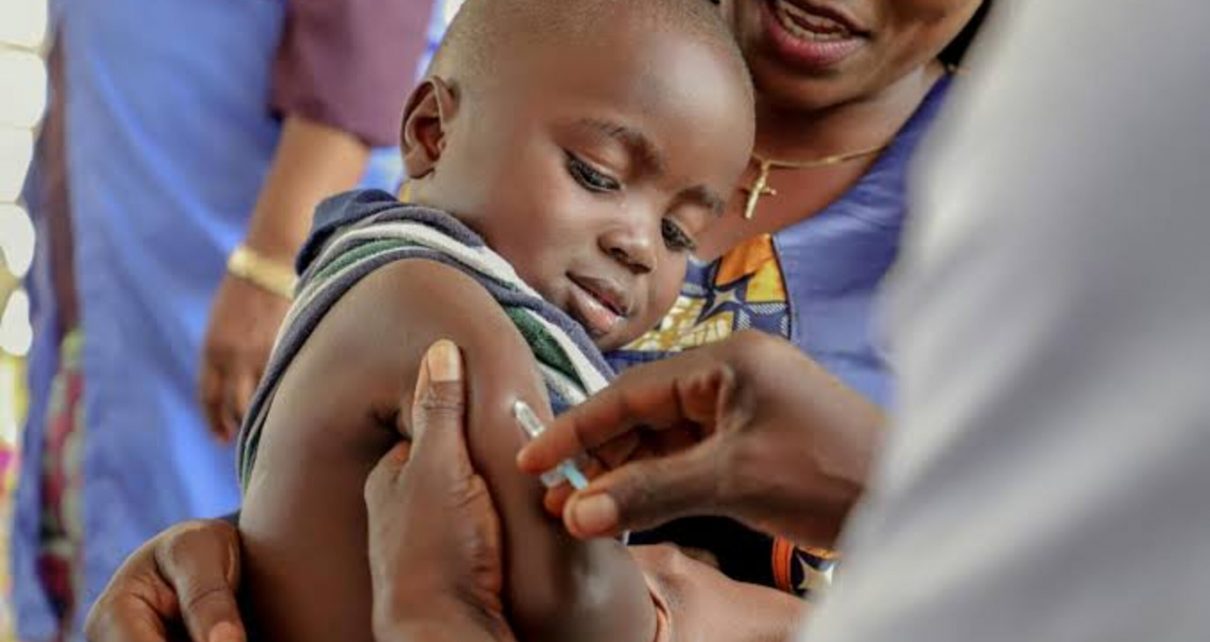The detrimental impact of the 2019–2021 COVID-19 pandemic, according to the World Health Organisation (WHO), is estimated to affect 6.2 million Nigerian children who have not had any vaccinations.
To mark African Vaccination Week (AVW) and World Immunisation Week with the theme “The Big Catch-Up,” Dr. Matshidiso Moeti, WHO Regional Director for Africa, made these remarks at a news conference on Tuesday in Abuja.
“The Big Catch Up is actually a year-long campaign aiming to reverse the serious setbacks in routine immunization.
“We acknowledge current efforts by government for 83 per cent reduction in circulating Variant Polio Virus type 2.
“Also a significant feat in sustaining certification for the eradication Wild Polio Virus in Nigeria,’’ she said.
An estimated 33 million African children will need to be vaccinated between 2023 and 2025, according to Moeti, who was represented by Dr. Walter Mulombo, WHO Country Representative to Nigeria.
Her argument is that this will get the continent back on track to meet the global immunisation targets set for 2030, which include a decrease in morbidity and mortality due to vaccine-preventable diseases.
“In the Africa Region, WHO estimate show that the unprecedented impact of the COVID-19 pandemic on routine immunization services has driven up the number of zero-dose and under-immunized children
“The effect causes rising by 16 per cent between 2019 and 2021 and pushing the cumulative total (2019–2021) to around 33 million, which represents nearly half the global estimate.
“In Nigeria, WHO estimates that in 2019 to 2021, 6.2 million children are zero dose; a consequence of the negative impact of COVID-19 pandemic,’’ she said.
She argues that governments and partners need to redouble their efforts to reach these kids.
Moeti stated that a high-level event was held by WHO at the 2023 African Union Summit to generate the necessary commitments.
“At the summit, African Heads of State endorsed a declaration aimed at revamping and scaling up routine immunisation across the continent.
“Also, to implementing urgent measures to address persistent bottlenecks in vaccine and health care delivery systems,’’ she said.
According to the regional director, WHO and its partners are making a concerted effort worldwide to restore and strengthen routine immunisation campaigns and reach children who were not vaccinated.
“The proactiveness of the government and the National Primary Health Care Agency for implementing the Optimized Outreach Sessions, integration of Routine Immunization during COVID-19 vaccination, Measles and Yellow Fever Supplementary Immunization Activities.
“These are key for the reduction in the high burden of zero-dose children in Nigeria and align the theme for the 2023 AVW celebration.
“The plan to introduce malaria vaccine in routine immunisation and Human Papillomavirus Vaccine (HPV) in 2023 and 2024 are commendable,
“This is as it aligns with establishing a life-course platform for immunization for optimum dividend from vaccination,’’ she said.
Moeti stated that all relevant parties, including the media, must work together on this day to encourage parents to bring their children to a local health centre for routine immunisations.
She urged reporters to spread the word so that parents might take their children to a clinic or hospital to get checked out and get any vaccinations they missed.
She believes it is important to get community leaders involved in immunisation efforts, from planning and running clinics to keeping tabs on how many people get vaccinated.
“We need to encourage traditional and religious leaders with Civil Society Groups to mobilise the community to always demand and access immunisation services.
“The media should let them know that vaccine is safe and effective against vaccine-preventable diseases,’’ she said.
The regional director defended the organization’s AVW funding by explaining that full Nigerian involvement in the Regional Working Group for Catch-up was essential for efficient planning.
She added that this would guarantee the mobilisation of resources for the twenty countries in the region that have the highest rates of youngsters with no exposure to radiation.
“WHO since 2015 issued revised immunisation scheduled to support the “Big Catch-up” where children who have missed being vaccinated can be safely vaccinated with appropriate vaccines.
“This is part of over 15 guidelines and strategies issued to countries including Nigeria.
“We are also supporting the NPHCDA engagement with 36 states and the FCT to develop tailored strategies to reach zero dose and unimmunised children,” she said.
She claims that the World Health Organisation has made it a top priority to provide technical assistance for the “Big Catch-up” and the Zero Dose objective in all states and LGAs.


